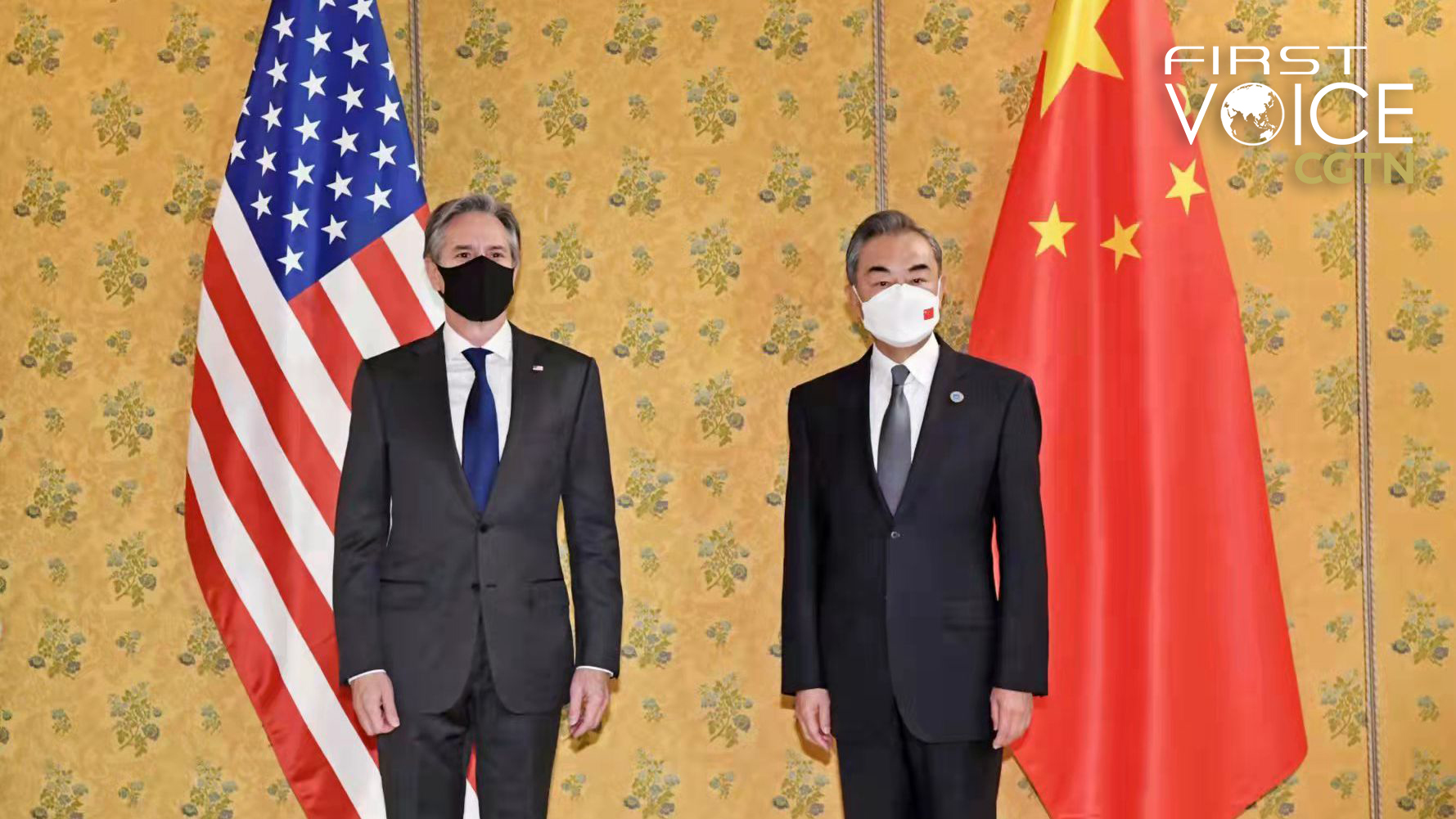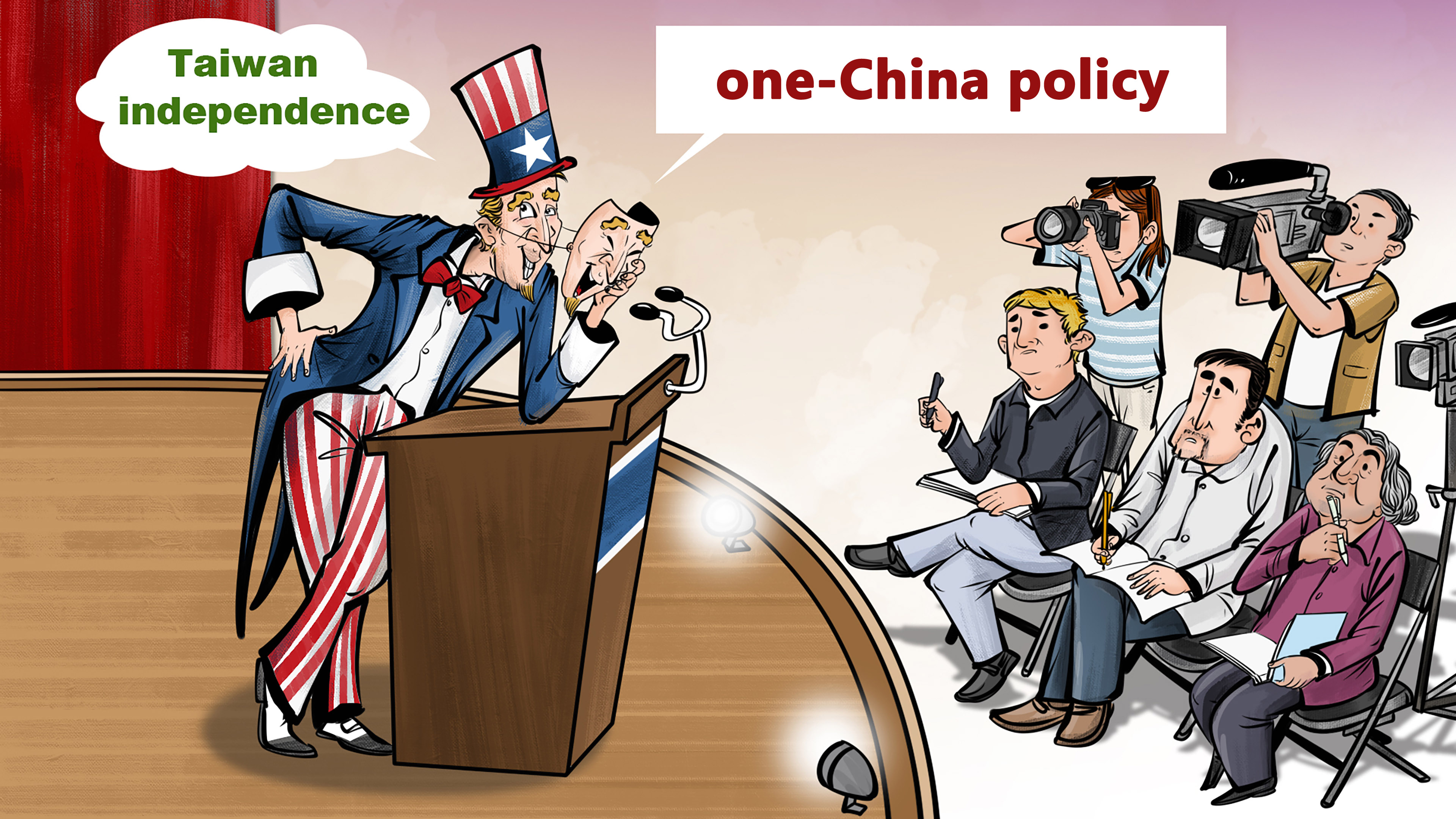
Chinese State Councilor and Foreign Minister Wang Yi (R) meets with U.S. Secretary of State Antony Blinken, Rome, Italy, October 31, 2021. /Chinese Foreign Ministry
Chinese State Councilor and Foreign Minister Wang Yi (R) meets with U.S. Secretary of State Antony Blinken, Rome, Italy, October 31, 2021. /Chinese Foreign Ministry
Editor's note: CGTN's First Voice provides instant commentary on breaking stories. The daily column clarifies emerging issues and better defines the news agenda, offering a Chinese perspective on the latest global events.
On the sidelines of the G20 summit, China's Foreign Minister Wang Yi met with U.S. Secretary of State Anthony Blinken. Taiwan was the primary issue of focus. After the meeting, Blinken reportedly "warned" the Chinese government "not to unilaterally change the status quo" on Taiwan.
During the meeting, Blinken intentionally ignored the fact that it is the U.S. that has been provoking China over the Taiwan question, offering support to the separatists of the Democratic Progressive Party (DPP).
America is the problem here.
The United States has a diplomatic commitment to adhere to the one-China principle as the foundation of its relationship with the country as a whole. The three China-U.S. joint communiques established that Taiwan is a part of China and the U.S. must not host troops on the island.
However, as part of its anti-China agenda, the U.S. has increasingly sought to abrogate its commitment to the one-China principle. It attempts to weaponize the island against the Chinese mainland via a process of salami slicing.
This has included giving increasing support to separatist forces on the island, removing restrictions on "diplomatic" contacts with them, seeking to expand their political space, and demanding they participate in international organizations. Apart from that, the U.S. encourages and supports other countries – such as Lithuania – in violating the one-China principle, stationing soldiers on the island, selling more arms to the DPP, making more "official" visits to the island, etc.
The list goes on.
In almost every area, the U.S. is rowing back its diplomatic commitments, trying to turn the one-China principle into an empty shell.
In moving the goalposts, who is really undermining Taiwan's status quo? Who is really undermining stability in the Taiwan Straits by deliberately undermining prospects for peaceful reunification?

Only a week ago, U.S. President Joe Biden provoked ruptures by claiming that the U.S. has a commitment to "defend" the island, a move which was interpreted by some as a shift in American policy. The White House moved quickly to deny what they called a gaffe, yet the trend is clear. The U.S. is "lecturing" China while treading a dangerous line on the Taiwan question.
Slowly shifting the status quo – while demanding China "not to change the status quo" – is a logical contradiction in real terms, because that status quo no longer exists.
The United States should remember that the only status quo being discussed here is the principle that Taiwan is legally and internationally recognized as a part of China, and that it will be subsequently reunified via peaceful means, or if the United States continues to undermine, by force if necessary.
China does not compromise on matters of sovereignty or territorial integrity, but the United States seems to think it can force this outcome subtly.
Thus, the message and the solution are simple: If the U.S. does not want a crisis in the Taiwan Straits, and if it truly wants to improve its relations with China, then it must adhere to its diplomatic commitments and cease supporting Taiwan independence separatists.
Nothing else can be achieved until this is done.
This is the only way whereby peace and stability will be guaranteed. As quoted by Wang Yi after the meeting, the historical and legal facts of one China cannot be challenged, and the 1.4 billion Chinese people's pursuit of peaceful reunification of the country cannot be held back.
The United States will not stand in the way of the forces of history. How the U.S. approaches the problem will not change the conclusion, but only the severity of the outcome. Therefore it is up to it to stop supporting an independence movement that is doomed to fail.
(If you want to contribute and have specific expertise, please contact us at opinions@cgtn.com.)

